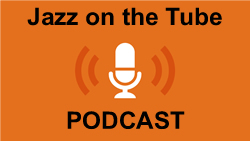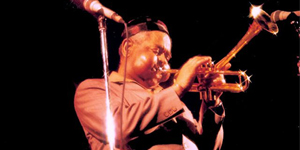Joe Henderson
Jazz On The Tube Radio
Tribute
Joe Henderson
Joe Henderson was born on April 24, 1937 in Lima, Ohio to family that included fourteen siblings. Joe was encouraged by his parents and one of his older brothers to study music and very early on was introduced to recordings of Lester Young, Flip Phillips, Stan Getz, Lee Konitz, Charlie Parker and Jazz at the Philharmonic. Henderson also loved the blues and was listening to musicians like B.B. King, Bo Diddley and Eric Dixon. Joe didn’t limit himself musically early on and learned drums, piano, saxophone and composition from a young age. Looking for more inspiration and education Joe moved to Detroit after high school and was a part of the Detroit Jazz scene of the time and got to play with Donald Byrd, Yusef Lateef and Barry Harris. Henderson studied at Wayne University with Larry Teal at the Teal School of Music learning theory and harmony and focusing on saxophone, flute and string bass. In 1960 Joe joined the army for two years and even found musical success there as his quartet in the army won first prize in an army talent show. The army chose Joe to tour internationally and entertain the troops and while he was in Paris he got to sit in with Kenny Clarke and Kenny Drew.
Following his stint in the army Henderson moved to the New York scene and joined up with Horace Silver. In 1966 he left Silver to co-lead a big band with Kenny Dorham and though they made no recordings at the time these arrangements can be heard on Joe’s 1996 album ‘Joe Henderson Big Band’. Also during this period Henderson recorded on over thirty albums for Blue Note Records including ‘Page One’ in ’63 and ‘Inner Urge’ and ‘Mode for Joe’ in 1966. Joe can also be heard on Herbie Hancock’s album ‘The Prisoner’, Horace Silver’s album ‘Song For My Father’, Lee Morgan’s classic album ‘The Sidewinder’ and several albums with pianist Andrew Hill. In 1967 Henderson signed with Milestone Records run by Orin Keepnews and co-led the Jazz Communicators with Freddie Hubbard. He also appeared on Herbie Hancock’s album from this period titled ‘Fat Albert Rotunda’ and experimented with the fusion movement happening at the time. Joe’s albums as a leader from this period reflect the Civil Rights and Social Movements of the time and his desire to express his feelings about them with ‘Power To the People’, ‘In Pursuit of Blackness’ and ‘If Your Not Part of the Solution, You’re Part of the Problem’.
In the 1980s Joe continued touring and making albums as leader while also working with Echoes of an Era, the Griffith Park Band and Chick Corea. In 1986 he recorded ‘State of the Tenor’ at the Village Vanguard with Ron Carter and Al Foster. Joe still seemed not to get the recognition his playing so clearly deserves but after recording the album ‘An Evening with Joe Henderson’ with Charlie Haden and Al Foster he was signed by Verve Records. Henderson found great success with his 1992 album ‘Lush Life: The Music of Billy Strayhorn’ for Verve and followed this with more album tributes to Miles Davis, Antonio Carlos Jobim and George Gershwin’s Porgy and Bess. Joe Henderson passed away in 2001.
Henderson is certainly one of the greatest tenor saxophone players in Jazz history and created a style and sound that can never be confused with other sax players. When I listen to Joe play his overall mastery of this art is clear as he reaches levels of depth in his playing that only the greats do. Every Joe Henderson solo is a true journey into the spirit and soul of Joe and combined with the sophistication and creativity of his musical ideas equates to something beautiful and unique each time.
“I’m in constant search of new information and ideas, and I want to make the best of this short time that we’re out here on this planet living this nebulous thing called life. And I want to plant a few trees along the way and nurture some minds and watch them grow, as people did for me.” – Joe Henderson
[tell-a-friend id=”1″ title=”Tell a friend”]





